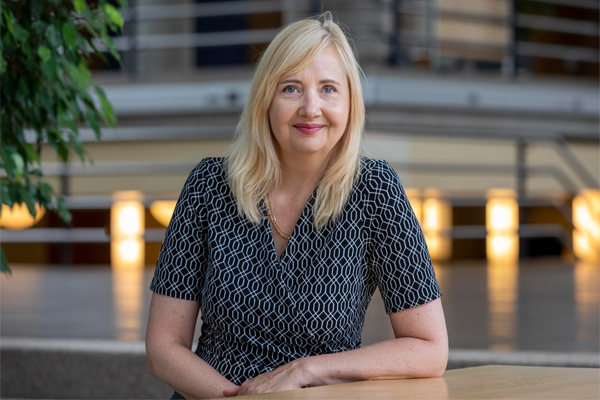To celebrate International Women’s Day, and week, Marianne Schmid Mast, Dean at HEC Lausanne (business school at the University of Lausanne) talks to Fair Play Talks about why ensuring gender diversity and securing a future pipeline of talented women academics is a top priority for business schools and universities globally. She also shares what HEC Lausanne is doing to recruit talented women and how it’s helping to support their career development and make female academics more visible.
Fair Play Talks: You are the second female Dean at HEC Lausanne, a role that’s still dominated by men more generally. How can we get more women in senior leadership roles?
Marianne Schmid Mast: It’s true that there are more men than women at the helm of both business schools and universities. The key to addressing this issue so that aspiring women can make it to the top of academia is to boost the development of strong leadership skills on the one hand, whilst offering a work environment in which women academics feel that they belong, on the other hand.
In Switzerland for example, there is a program specifically dedicated to empowering and developing female professors to become the next generation of leaders: “H.I.T. Programme, High Potential University Leaders Identity & Skills Training Programme”. As a leadership scholar and Dean of a business school, I teach the topic of leadership identity and personal influence.
But we not only have to invest in training, we also need to ensure an inclusive environment by providing successful role models, as one example, and adhering to selection and promotion criteria that give equal opportunities to women and men in academics.
Fair Play Talks: How important are female role models for women in academia?
Marianne Schmid Mast: When it comes to hiring female professors, we need to do more than just tap into the existing talent pool. It’s essential to “feed” both our global and local pools and to proactively develop the talent pipeline. Providing role models is one way to do so.
In 2018 HEC Lausanne created the Female Career Award to honour and promote leading women academics outside of the school in order for them to become role models for our own junior women academics. This year’s winner is Candace Arai Yano from the University of California, Berkeley. By sharing their personal stories and giving the inside track on what it takes to succeed, these women act as a source of inspiration for aspiring researchers and academics.
Additionally, HEC Lausanne provides career advice and feedback for our junior doctoral and postdoctoral students through our Career Lunch Grant networking opportunity, where students get the opportunity to meet a professor of their choice from another business school or university over a meal. These independent mentors can act as a valuable sounding board for key career decisions as well as offering support on more personal issues such as work/life balance.
Fair Play Talks: How do you hire diverse talent for HEC Lausanne?
Marianne Schmid Mast: In order to tap into the existing talent pool for women, we deploy “active search” and do all that we can to identify talented women researchers and encourage them to apply. At HEC Lausanne, we are a research-oriented School and as research is international, we attract top talent from across the world. Currently, we have more than 100 professors from a diverse range of backgrounds, but the percentage of women professors remains low in comparison to the percentage of women in a postdoc position and thus of potential applicants for professorship positions.
In this leaky pipeline, we lose women academics on their way to a professorship position. To prevent this, at HEC Lausanne, we offer attractive family-friendly working conditions. We make an effort to schedule meetings at noon and not, as is still the custom in higher education in Switzerland, in the evenings, we offer childcare facilities and we actively promote awareness around implicit bias in the communication and decision-making processes.
Fair Play Talks: Have you come across gender bias in the recruitment process?
Marianne Schmid Mast: Yes, research shows that a very young woman applying for a professorship position might not be hired because she lacks experience, while an equally young man would be hired because the hiring committee appraises his potential.
At HEC Lausanne, all heads of academic hiring committees systematically undergo implicit bias training, including the Dean’s office, department Directors and programme Directors. HEC Lausanne has diversity anchored in its mission and equality is thus embedded in the Faculty governance.





































